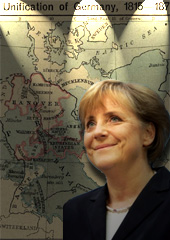Who Is a Globalist?
For all the talk about globalization and the global economy, we ask: Who is a globalist?
August 1, 2013
Anyone with a curiosity to learn about the world around them — and an ability to keep an open mind and an interest in sorting out the changes being wrought every day — can consider himself or herself a “globalist.”
Globalists are by no means an elite circle of business or political leaders determined to push forward their agenda in a rapid-fire fashion.
What unites globalists is a strong interest in understanding more about the modern global economy, politics and culture — and how these forces relate to each other.
A globalist, in short, is anyone dedicated to figuring out how the world hangs together. That includes sorting out the dynamic political and social changes associated with globalization, questioning them rigorously and seeking to correct them when necessary.
That is why our editorial focus is on presenting the many intriguing story lines from all corners of the world. At the core, we are dedicated to examining the premises and fallacies of conventional wisdom about the global landscape — with new features every day.
In doing so, we are not trying to give any definite answers. Rather, we lay out before you the results of the questions that intrigue us. Ultimately, we are putting together a mosaic — daily feature by daily feature — all in an effort to compose a broader picture.
Globalists understand that the cooperation of many individuals, institutions and corporations is needed to ensure that the potential fruits of globalization are spread throughout the world fairly and equitably. Globalists are committed to muting or eliminating globalization’s negative effects.
Thus, globalists believe that solid arguments — and not narrow-mindedness and demagoguery — are needed to bring all parties to a better understanding of their own role and responsibilities. In that vein, globalists place the highest possible emphasis upon exploration and open-mindedness.
In fact, many globalists have not formed set opinions one way or the other — either about the global economy, society, politics and culture or about globalization itself.
What unites globalists is their interest in the process of constant discovery, learning, open-mindedness and exploration on a global scale.
It is a daunting task and requires both listening — and contributing — to the dialogue about the ongoing process of global integration.
One thing that globalists do agree on is the importance of a keen awareness about the process of globalization. This integration process has been going on for hundreds of years.
At different stages, varying nations have been in the lead as a result of their specific courses of action. By the same token, the dynamic integration of the global economy does not — and cannot — predominantly serve the interests of any one nation, no matter how powerful.
Ideally, we are all globalists, as members of the human community and the global economy, living on the planet earth. As the economy evolves and pressure on the environment rises, so too should the debate about it and the many changes brought about by globalization.
Globalists watch closely as these changes occur — and take part in the debate. They make their contributions and insights heard. Thus, true globalists will have a direct impact on the process of globalization — and give the crucial debate about it a truer form and shape.
Another thing on which globalists tend to agree is that globalization, for all its faults, tends to advance — rather than retard — the agenda of global openness.
After all, due to the power of the media — in particular, social media — globalization’s failures and weaknesses are exposed more quickly and powerfully than ever before. This global spotlight gives perpetrators a strong incentive to correct their actions.
Such democratization is the key to ensuring that the positive power of globalization gets harvested while its potential harms are kept in check
As constructive globalists, the editorial team at The Globalist and our worldwide author network are not beholden to any particular national identity or interest. We tell stories, draw comparisons, analyze the issues and examine the arguments of all sides in the globalization debate — and we strive to do so clearly and cogently.
That is where we differ from many of the world’s traditional media, governments, corporations, think tanks or universities. They often limit their scope of analysis and interpretation in a crucial manner — by persistently advancing their own nation’s set of interests in the dialogue on globalization.
Viewing the sweeping changes in the global economy and politics through the prism of any nation often leads to misunderstanding — or outright fallacy.
Editor’s note: This is an updated version of an essay that first appeared on The Globalist on May 17, 2002.
Takeaways
Anyone with a curiosity about the world around them can call themselves a "globalist."
Globalists are united by their interest in constant discovery, learning, open-mindedness and exploration.
Regrettably, media, governments and corporations of many nations often promote only national interests.
A globalist, in short, is anyone dedicated to figuring out how the world hangs together.
Globalists seek to harvest the positive power of globalization while keeping ill effects in check.

